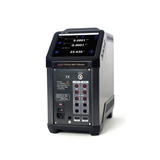Source: NSW Business Chamber
It cannot match the population size of India, nor the economic growth of China. Yet as one of Asia’s five largest economies, it is well worth considering as an international partner.
The country also has a long history of doing business with the west, which makes it an easier market to enter, especially for new exporters.
A snapshot
Unlike its neighbour North Korea, the Republic of Korea is stable and open, both politically and economically.
Economic development has been swift and deliberate. When Japanese occupation ended in 1945 the economy was impoverished. The destruction of infrastructure during the Korean War worsened the situation. But since 1960, consistent economic growth due to industrialisation has transformed the country. It is now the tenth largest economy in the world.
The current population is almost 49 million. The economy continues to grow, with GDP increasing between 4 and 5 percent each year. Inflation has also been steady at under 4 percent.
Social issues too remain steady. Unlike the giants India and China, only a small percentage of the population live in poverty, and the majority are well educated (literacy rates are 98 percent). Although unemployment recently increased, it remains at just 4 percent.
Western brands are common, and sought after by the majority of the population who have significant disposable income, although rising credit card debt is seeing a drop in consumer spending.
International partnerships
The country has been involved in trade with western countries for some time. The majority of business people have good English skills and a greater understanding of western business practices than many Asian nations.
Some cultural differences do still occur as with any Asian nation, but with the language barrier lessened significantly these can be overcome by researching the market.
The Republic of Korea has free trade agreements with the US, Chile, Singapore, the European Free Trade Association (Iceland, Norway, Liechtenstein and Switzerland) and ASEAN (excluding Thailand). It is in negotiations with several other countries.
Australia and the Republic of Korea are currently conducting an FTA study.
Australia and the Republic of Korea
Australia and the Republic of Korea are already firm trading partners. In 2006 Australia exported A$12.3 billion worth of goods to Korea, and another A$1.6 billion of services.
Our major exports are coal, crude petroleum, iron ore and beef along with education and tourism services.
Australia also imported almost A$7 billion worth of goods from Korea, making it our sixth largest import source. The main imports were passenger motor vehicles, refined petroleum, telecommunications equipment and ships, boats and floating structures.
Overall, the Republic of Korea is our fourth largest trading partner.
Opportunities
The current trading relationship involves Australia exporting raw materials, foodstuffs and services, and importing finished products, such as cars, telecommunications equipment and computers.
Other opportunities are growing in sectors such as, biotechnology, building and construction, defence, information and communications technology, textiles and clothing, dairy, seafood, and wine.
As the country’s economy still relies on agriculture, tariffs on imported goods in this sector remain high. However the agriculture sector is undergoing a program of reform to increase efficiencies and international competitiveness which should see tariffs drop in the coming years.
The government has made a commitment to advance the country’s technology capacity. Companies are seeking Australian basic scientific research and innovation for commercial application, especially in environmental technologies and biotechnology.
Australian services too are experiencing growing demand, particularly financial services including infrastructure finance, banking and management advice. Education and tourism services also continue to grow.
If you are considering a business venture in the Republic of Korea, call: 1800 505 529.
Figures sourced from the Australian Government Department of Foreign Affairs and Trade.




